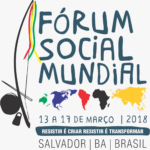Titre TURISMO Y PUEBLOS INDÍGENAS - TOURISM AND INDIGENOUS PEOPLES
Thème - Territoire
Slogan La vie n’est pas une marchandise, Igualdade de Direitos uma agenda pendente, Un Monde sans Racisme, Intolérance et Xénophobie
Descrição / Relato
Where are we ten years after the world endorsed the United Nations Declaration on the Rights of Indigenous Peoples? And what role does tourism play?
In 2007, The UN General Assembly accepted UNDRIP amid great hope that the situation of Indigenous peoples would improve. However, Indigenous people around the world are under constant assault as their lands, cultures, “resources”, knowledges and even their DNA are held in greater value in a resource-constrained and over-populated world.
Tourism is a part of this agenda and social movements and activists should come together to consider the issues.
The struggles of Indigenous peoples are varied. Indigenous peoples are located in the Global South, the newly emerging economies such as Brazil and the North. They have been subject to colonisation, settler-colonialism and genocide; processes that continue despite progressive rhetoric to the contrary. Tourism has played a role in the dispossession, exploitation and abuse of Indigenous rights, including:
1) Serving as a cover for biopiracy
2) Contributing to developments endangering biodiversity
3) Contributing to global environmental change, including global warming
4) Fostering dependency on tourism as a mono-crop
5) Dispossession of whole communities for attractive environments
6) Causing impacts through commodification, appropriation, the demonstration effect
7) Serving as a tool for stealthy assimilation into the capitalist economy
8) Undermining living Indigenous cultures through forms of tourism that trade on petrified versions of “traditional” and “authentic” Indigenous culture
The situation is dire and growing worse.
For example: places such as Tibet and West Papua suffer ongoing aggressive colonisation; “pristine” environments and “wild” places cared for by Indigenous Peoples are being stolen for elite forms of ecotourism in places like the Sundarbans and East Africa; some Pacific Island communities face displacement due to climate change impacts; and biodiversity hotspots such as Amazonia are being usurped for the use of outsiders.
Meanwhile, the global economy trades on Indigenous symbols, appropriates native foods, steals Indigenous knowledges for corporate pharmacology and reduces Indigenous peoples to tourism hosts in an effort to extract the final precious resources that Indigenous custodians protect.
Worst of all is the announcement that Indigenous people can lead the way in efforts to save a world facing enormous crises without a thought to actually addressing the structural racism and oppressions still facing Indigenous peoples today.
We say enough is enough. We meet to consider the range of threats Indigenous communities confront at the interface with tourism and to strategize what mechanisms are available for resistance and collaborative action.
Data/hora
Date(s) - 14/03/2018
09:00 - 12:45
.

